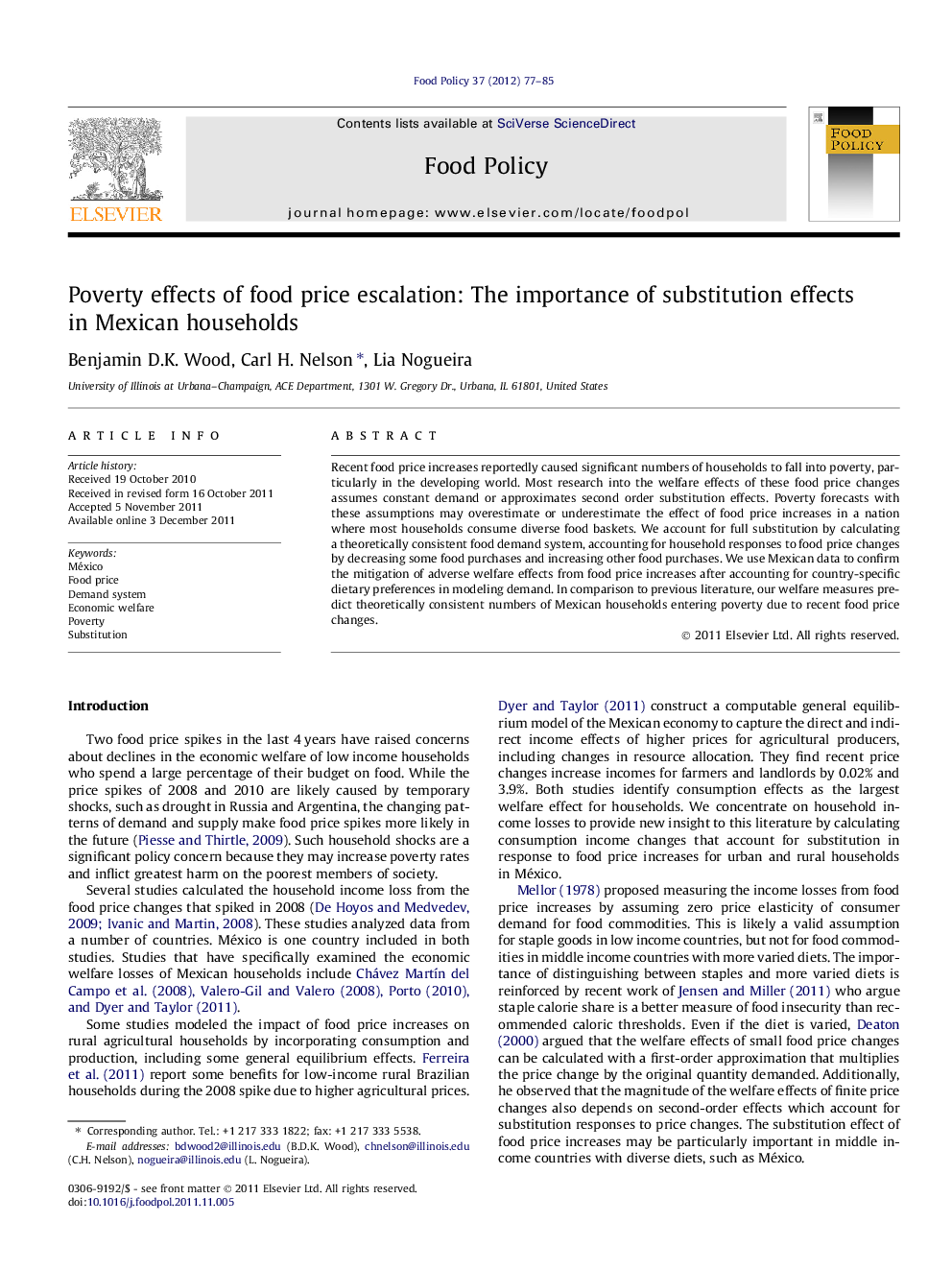| کد مقاله | کد نشریه | سال انتشار | مقاله انگلیسی | نسخه تمام متن |
|---|---|---|---|---|
| 5070806 | 1373276 | 2012 | 9 صفحه PDF | دانلود رایگان |

Recent food price increases reportedly caused significant numbers of households to fall into poverty, particularly in the developing world. Most research into the welfare effects of these food price changes assumes constant demand or approximates second order substitution effects. Poverty forecasts with these assumptions may overestimate or underestimate the effect of food price increases in a nation where most households consume diverse food baskets. We account for full substitution by calculating a theoretically consistent food demand system, accounting for household responses to food price changes by decreasing some food purchases and increasing other food purchases. We use Mexican data to confirm the mitigation of adverse welfare effects from food price increases after accounting for country-specific dietary preferences in modeling demand. In comparison to previous literature, our welfare measures predict theoretically consistent numbers of Mexican households entering poverty due to recent food price changes.
⺠Tortilla is a staple good with an own price elasticity of demand that is basically 0. ⺠First-order welfare measures are accurate for tortilla price changes in Mexico. ⺠Substitution makes first-order welfare measures overestimate welfare losses. ⺠Large price increases, like 50%, cause the most significant overestimation. ⺠First-order welfare measures overestimate poverty increases by 45-65%.
Journal: Food Policy - Volume 37, Issue 1, February 2012, Pages 77-85